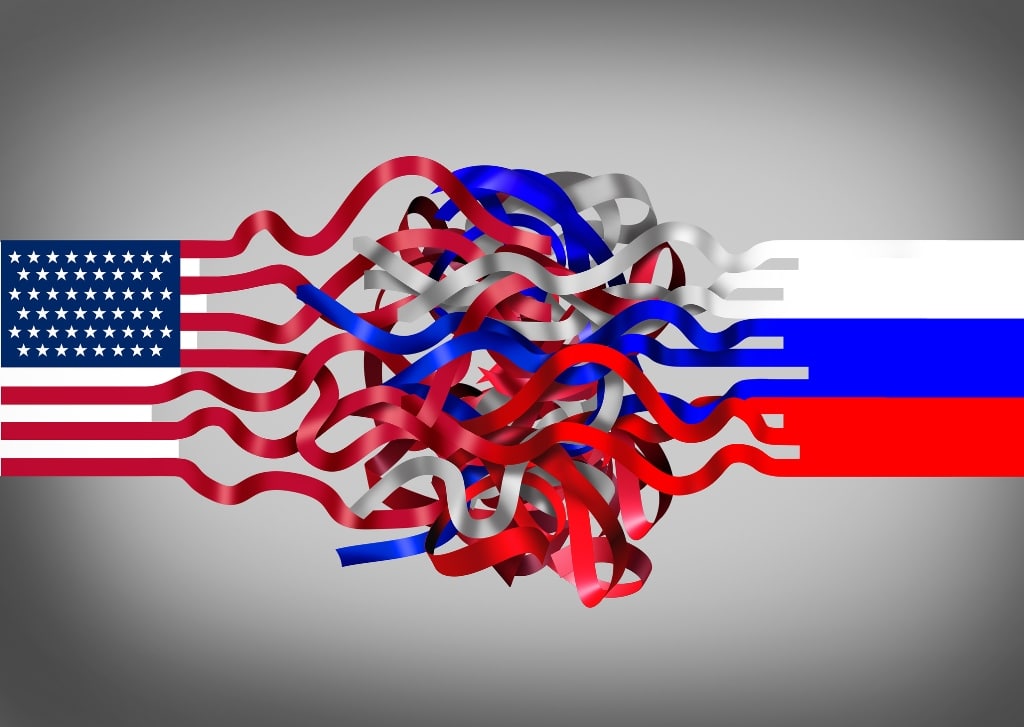“An easing of tensions and improved relations with Russia — from a position of strength — is possible. Common sense says this cycle of hostility must end.” Candidate Donald Trump said that on April 27, 2016. At first glance that might sound rather irrelevant to Gabbard’s Russiagate revelations. But let me connect the dots for you.
The first point is that Russiagate has inflamed US-Russia tensions. That action actually had a number of beneficiaries. Their interests would be harmed by Trump’s aspiration.
Who are they? Primarily I’m talking about the US defense industry and those connected in some way. Certainly a strong defensive capability is of vital importance. But the demand for defense production becomes inflated by provocations like Russiagate. However, such demand is not essential for a strong defense posture.
It is natural behavior for an industry to try to protect itself and to grow. That means the defense industry would be receptive to provoked demand. And there is evidence that many American politicians would be motivated to support that unnecessary production. Here’s why. First, if there were no politically provoked demand there would be a lesser need for defense production. Congressional district and state economies could be negatively impacted by fewer defense contracts, there would be fewer jobs, out of work people would spend less money thus impacting local economies, there might be fewer revolving-door opportunities for politicians leaving government service, and there could be fewer campaign contributions, free trips including foreign visits, and a reduction in other favors provided to politicians (such as supporting pet charities or projects of a politician).
In short, a peace dividend from better US-Russia relations would be felt quite negatively by the foregoing. And that’s where my cited Trump quote favoring better relations with Russia connects. His aspiration runs counter to certain political interests by compromising them.
Perhaps that’s why just 36 days after Trump’s cited aspirational statement, Hillary Clinton said, “If Donald gets his way, they’ll be celebrating in the Kremlin. We cannot let that happen.”
Now, I don’t think she meant literally celebrating like a birthday party. Being very happy might fit the metaphor.
But why wouldn’t both countries be happy over the advent of better relations? Certainly that was the case back when President Ronald Reagan made friends with Soviet leader Mikhail Gorbachev. For comparison, wouldn’t the US administration be happy if it convinced the leadership of Iran to honestly seek better relations with us?
Countries enjoying solidly good relations generally don’t fight each other directly or by surrogacy.
So this is what Gabbard’s reports missed: They omitted the greater context concerning the benefits for some from undertaking the Russiagate hoax. Gabbard makes it sound simply like a big untoward political squabble. She missed the point that it is within some commercial interests to vilify Russia as did Russiagate.
Her reports expose the political culprits responsible for the hoax. But they ignore that greater context in which they did it. And that context is far more consequential than the political angle that has dominated the Gabbard news story. Even putting Obama in jail, as some have mused about, wouldn’t solve the fundamental problem.
There are real problems created by those who benefit from conflict in the world. Those problems are inextricably related to the onset of the Russiagate hoax. All the perpetrators of the hoax may not have been astute enough to realize that. Yet it remains at the heart of the matter.
President Eisenhower actually gave warning of this in his farewell address. He proclaimed: “In the councils of government, we must guard against the acquisition of unwarranted influence, whether sought or unsought, by the military-industrial complex. The potential for the disastrous rise of misplaced power exists and will persist.”
Indeed, that’s what seems to be the raison d’être of Russiagate at the most fundamental level. Vilifying Russia was politically beneficial for Trump’s adversaries for the reasons cited above. Exposing that reality would be of much greater benefit than just prosecuting some political culprits as Gabbard has advocated. (Not that there’s anything wrong with that.)
Here’s What Gabbard’s Russiagate Report Missed

